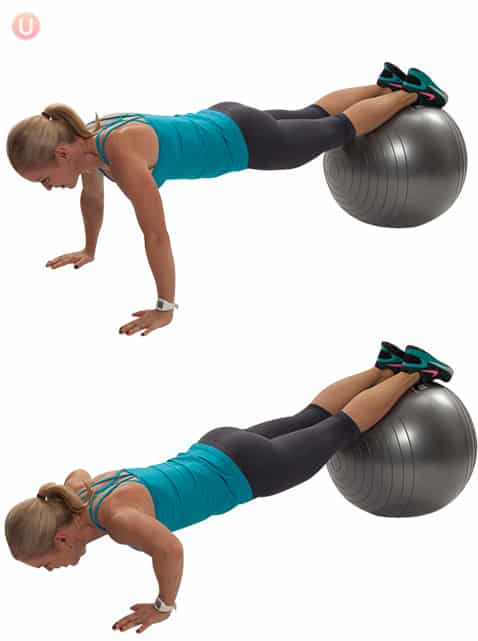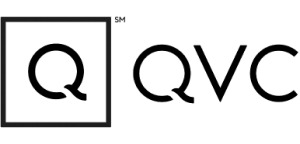This post contains affiliate links. Please see our disclosure policy.

If you’ve mastered the basic push-up, the stability ball push-up is a great way to increase the challenge. Using the stability ball activates more core muscles than the standard floor push-up because you’re performing a push-up on an unstable surface. Using the unstable surface of the ball forces your abdominals to recruit more muscle fibers overall, giving you a more complete abdominal exercise.
In addition, this move on the ball will challenge your balance. If you are ready to take your core strength to the next level you should learn how to do Stability Ball Push-Up.
In addition to core and balance, the Stability Ball Push-Up, like all push-ups, fires up the muscles in the chest, shoulders and back. Anytime multiple muscles groups are working together, it’s a total body exercise. And the more muscles worked means the more calories burned!
Total body exercises not only give you the most bang for your buck, but they are also a functional way to improve posture and prevent injury!
Perhaps one of the best parts of the Stability Ball Push-Up, however, is that the move can be quickly adjusted to accommodate ALL LEVELS of strength. By walking your hands forward a few inches, you increase the intensity level of the push-up.
Leaving just your feet on the ball and the rest of your body suspended creates a ton of intensity. By the same token, if you struggle doing a basic floor push-up, walk your hands back a few inches on the floor to place more of your body on the ball.
If your thighs and perhaps even hips are on the ball, that means more of your body weight is supported and the push-up becomes much easier.
Looking for another total body exercise that uses a stability ball? Check out the Stability Ball Ab Pike!
Stability Ball Push Up Instructions
- Begin in a plank position with feet on the ball and hands on floor just below your shoulders. Hold your body in a straight line.
- As you inhale, bend your elbows to lower chest toward the floor. As you exhale push back up to plank position.
Targets: chest, arms, shoulders, back, core


